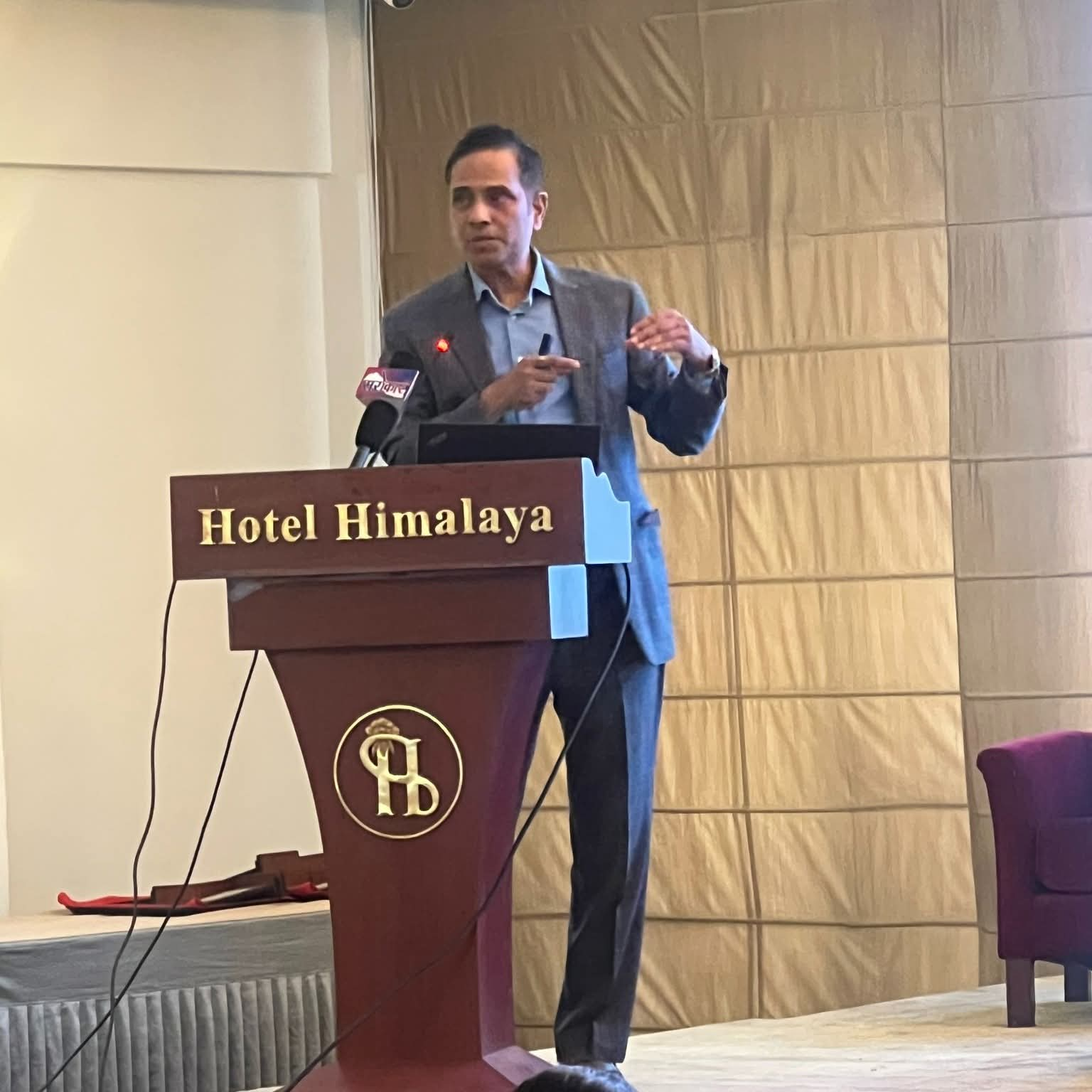Kathmandu, 17 June 2025 – A significant event titled "Post-Sagarmatha Sambaad" convened today in Kathmandu, bringing together a diverse group of stakeholders to deliberate on climate resilience, sustainable development, and the resolution of the Sagarmatha Sambaad. Organized collaboratively by SAHAS Nepal, Youth Alliance for Environment (YAE), and Karnali Integrated Rural Development and Research Center (KIRDARC), the program featured key discussions aimed at fostering actionable strategies to address pressing environmental challenges.
Mr. Madhu Marasini, Senior Fellow at SAWTEE, delivered a keynote presentation on the "Resolution of Sagarmatha Sambaad," shedding light on critical insights and actionable recommendations stemming from the historic dialogue. His presentation emphasized the need for collective efforts among local communities, policymakers, and global stakeholders to advance sustainable mountain development and climate resilience.
The event witnessed the active participation of prominent figures, including the Hon'ble Minister of Forest and Environment of the Government of Nepal, members of parliament, policymakers, environmental experts, media professionals, civil society leaders, youth representatives, and members of mountain communities.
The discussions revolved around key themes such as integrating local perspectives into global climate agendas, empowering youth in environmental advocacy, and addressing the unique challenges faced by mountain communities due to climate change. Stakeholders collectively highlighted the importance of leveraging the outcomes of the Sagarmatha Sambaad to drive policy reforms and implement sustainable development initiatives at national and international levels.
Speaking at the event, the Hon'ble Minister of Forest and Environment reaffirmed the government’s commitment to addressing climate challenges through inclusive policymaking and grassroots engagement.
The Post-Sagarmatha Sambaad served as a critical platform for reinforcing Nepal’s leadership in climate dialogue and strengthening partnerships to achieve Sustainable Development Goals (SDGs) in the context of mountainous and vulnerable ecosystems.